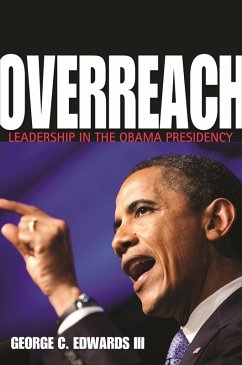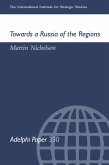How Obama overestimated the power of rhetoric and persuasion during his presidency
When Barack Obama became president, many Americans embraced him as a transformational leader who would fundamentally change the politics and policy of the country. Yet, two years into his administration, the public resisted his calls for support and Congress was deadlocked over many of his major policy proposals. How could this capable new president have difficulty attaining his goals? Did he lack tactical skills?
In Overreach, respected presidential scholar George Edwards argues that the problem was strategic, not tactical. He finds that in President Obama's first two years in office, Obama governed on the premise that he could create opportunities for change by persuading the public and some congressional Republicans to support his major initiatives. As a result, he proposed a large, expensive, and polarizing agenda in the middle of a severe economic crisis. The president's proposals alienated many Americans and led to a severe electoral defeat for the Democrats in the 2010 midterm elections, undermining his ability to govern in the remainder of his term.
Edwards shows that the president's frustrations were predictable and the inevitable result of misunderstanding the nature of presidential power. The author demonstrates that the essence of successful presidential leadership is recognizing and exploiting existing opportunities, not in creating them through persuasion. When Obama succeeded in passing important policies, it was by mobilizing Democrats who were already predisposed to back him. Thus, to avoid overreaching, presidents should be alert to the limitations of their power to persuade and rigorously assess the possibilities for obtaining public and congressional support in their environments.
When Barack Obama became president, many Americans embraced him as a transformational leader who would fundamentally change the politics and policy of the country. Yet, two years into his administration, the public resisted his calls for support and Congress was deadlocked over many of his major policy proposals. How could this capable new president have difficulty attaining his goals? Did he lack tactical skills?
In Overreach, respected presidential scholar George Edwards argues that the problem was strategic, not tactical. He finds that in President Obama's first two years in office, Obama governed on the premise that he could create opportunities for change by persuading the public and some congressional Republicans to support his major initiatives. As a result, he proposed a large, expensive, and polarizing agenda in the middle of a severe economic crisis. The president's proposals alienated many Americans and led to a severe electoral defeat for the Democrats in the 2010 midterm elections, undermining his ability to govern in the remainder of his term.
Edwards shows that the president's frustrations were predictable and the inevitable result of misunderstanding the nature of presidential power. The author demonstrates that the essence of successful presidential leadership is recognizing and exploiting existing opportunities, not in creating them through persuasion. When Obama succeeded in passing important policies, it was by mobilizing Democrats who were already predisposed to back him. Thus, to avoid overreaching, presidents should be alert to the limitations of their power to persuade and rigorously assess the possibilities for obtaining public and congressional support in their environments.









